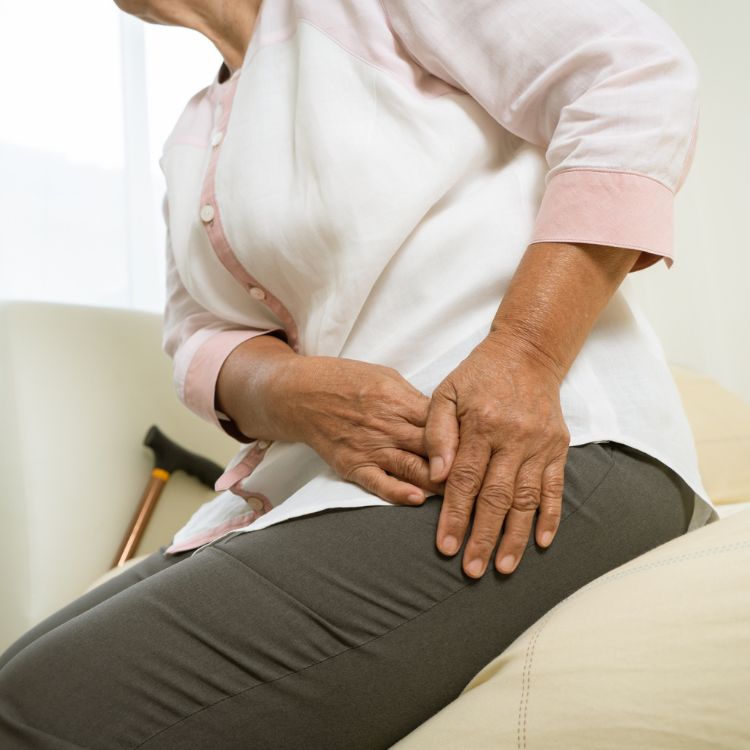What Causes Hip Pain?
There are numerous factors that could lead to hip pain, with some of the most common causes being:
- Prolonged lying or awkward positions: Lying on one side for an extended period, or sitting for too long in an uncomfortable posture, can put pressure on your hips and cause discomfort.
- Overuse or repetitive movement: Activities that place excessive strain on your hip joint, such as high-impact sports, can lead to inflammation or injury.
- Muscle stiffness: Tight muscles around the hip, often caused by a lack of stretching or activity, can contribute to pain and discomfort.
- Trauma or injury: Sprains, strains, or fractures resulting from accidents, falls, or sudden movements can cause significant hip pain.
- Age-related wear and tear: As you get older, the hip joint naturally experiences degeneration, which can lead to conditions like osteoarthritis, increasing the likelihood of hip pain.
Where Is the Pain Coming From?
Pinpointing the exact location of your hip pain is essential in determining its cause. If you’re experiencing pain deep in your hip or groin, it’s likely related to issues within the hip joint itself. On the other hand, if the pain is localized to the outside of your hip, upper thigh, or buttock, the problem may be due to muscle or soft tissue strain rather than the joint itself.
What You Can Do for Hip Pain
If you’re dealing with hip pain, there are several strategies you can try to relieve discomfort and speed up recovery:
- Rest and avoid pressure: If possible, try to avoid putting weight on your hip. Resting the affected hip can help reduce inflammation and prevent further irritation.
- Modify your position: Avoid lying or sitting on the side that’s causing you pain. This will help prevent aggravating the condition.
- Over-the-counter pain relief: Medications like ibuprofen or acetaminophen can help reduce inflammation and ease the pain.
- Cold therapy: Applying cold packs to the affected area can reduce swelling and numb the pain. Be sure not to apply the cold pack for longer than 15 minutes at a time, but you can use it several times a day.
- Exercise and stretching: Gentle, low-impact exercises like swimming or stretching can be helpful, especially if your hip pain is related to arthritis or muscle stiffness. Avoid high-impact activities that can put more strain on the hip joint.
- Warm baths or showers: A warm bath or shower can help relax tight muscles and soothe the pain.


